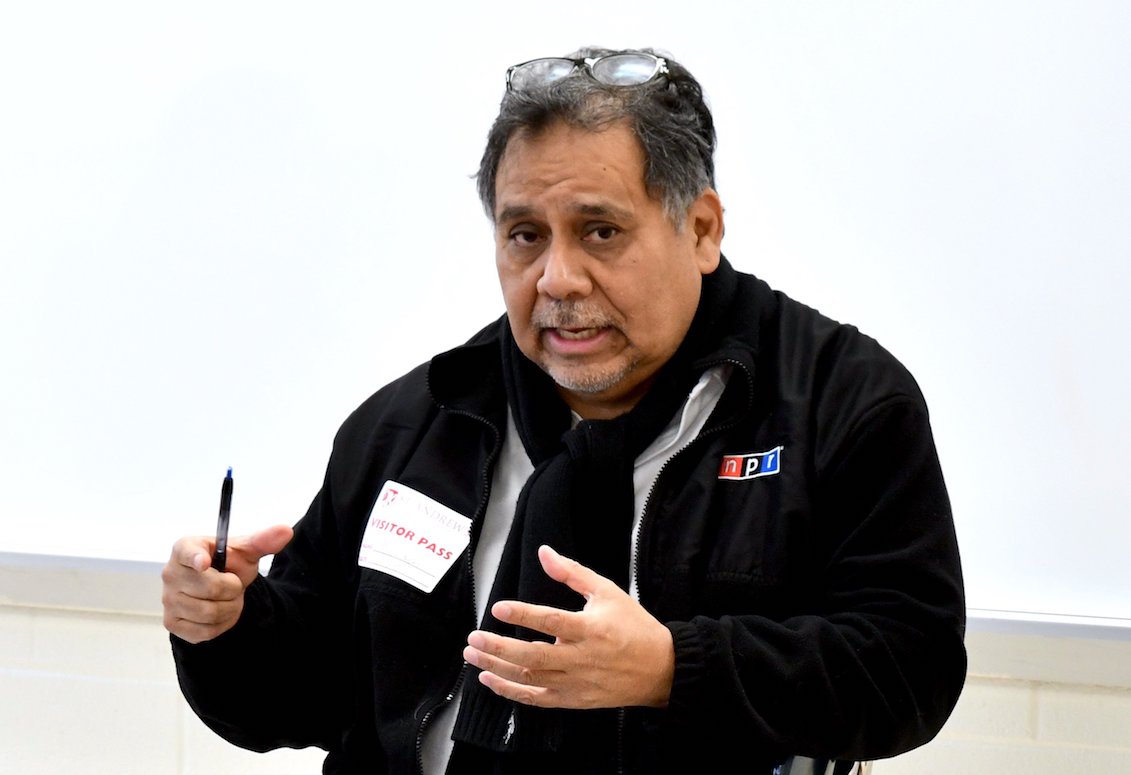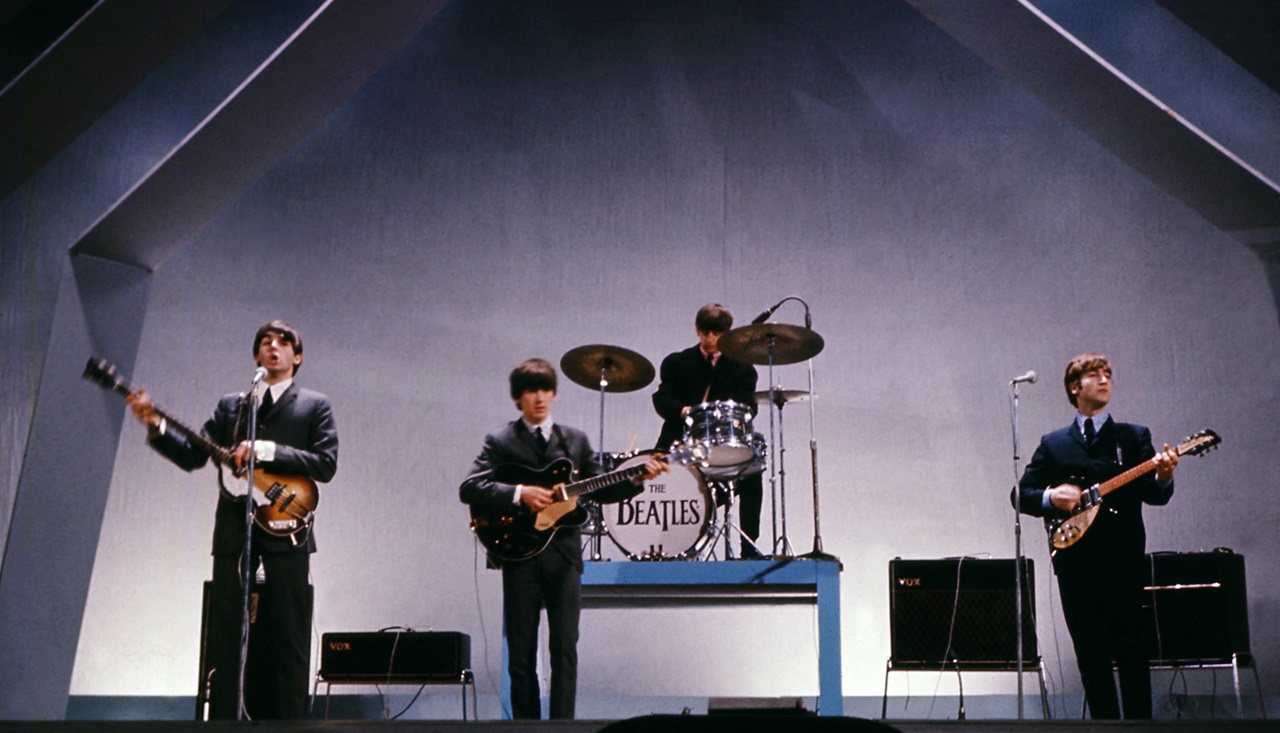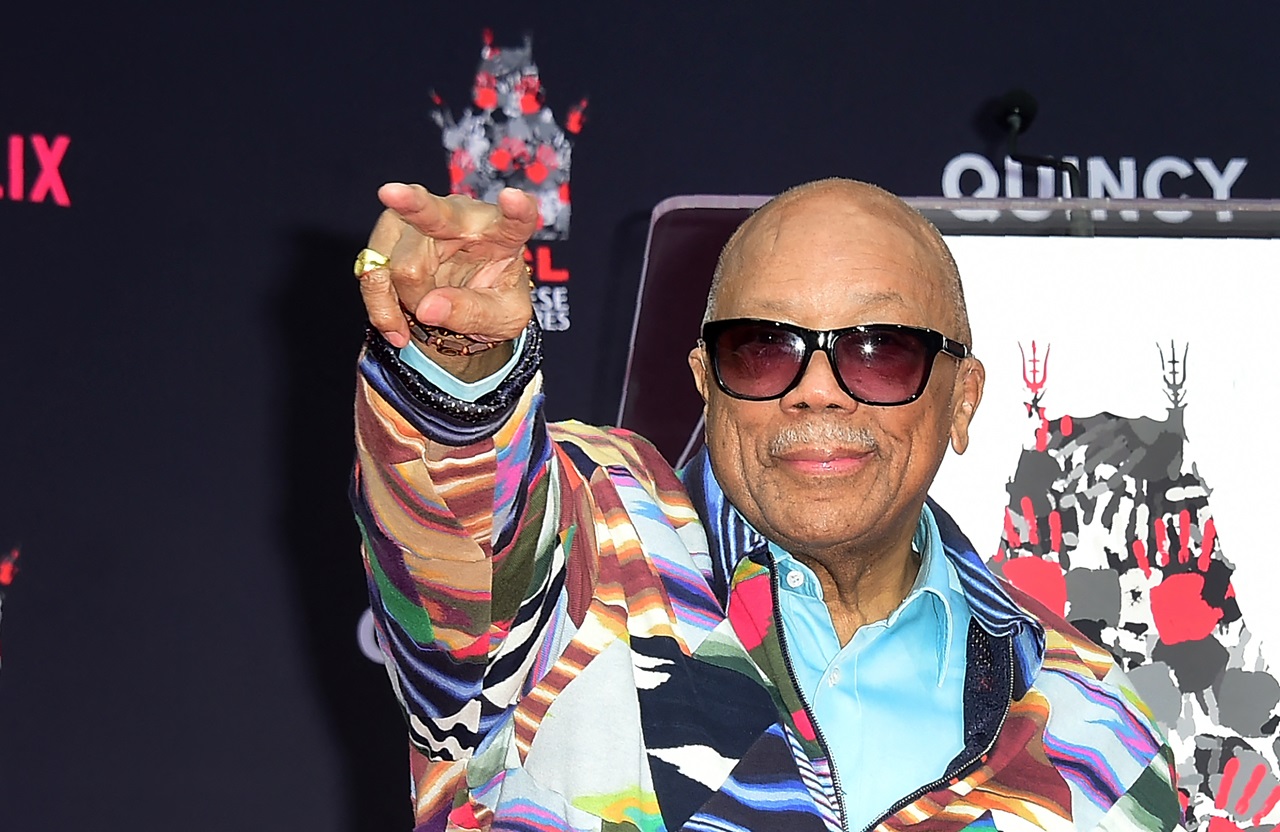
NPR’s Felix Contreras of El Tiny: “I’m extremely satisfied and way beyond proud”
Felix Contreras is known at NPR by the nickname “Tio Felix,” a loving reflection of his commitment to helping others as if they are family.
A veteran interviewer, Contreras was a TV journalist before his 2001 NPR debut, working first as a reporter for the News Arts Desk. Within the Washington D.C. music scene, he is also a member of Los Day Trippers, a Latin music Beatles cover band.
Contreras also works on the Tiny Desk concert series, programming for musicians who come from the Latin diaspora. He takes to Instagram weekly to host live interviews with a number of guests.
There is no distance Contreras will not go to discover new talent, being noted as a traveler who seeks out artists while ensuring influential acts get the recognition they deserve.
Approximately two years after starting his work on the Tiny Desk series, Contreras began booking Latin musicians for the show. Now, Contreras books all of the Latin music for the Tiny Desk series.
Contreras’ contributions to music journalism have caught the attention of many publications who have noted the influence he carries when putting an artist on to his audience.
Today, Contreras puts his talents towards a variety of projects, some of which are NPR’s most noted and prominent. He is credited as the co-creator of Alt.Latino at NPR, a podcast he now hosts.
This year, to celebrate Hispanic Heritage Month, Contreras formally began El Tiny, a section of the Tiny Desk series that exclusively showcases Latin musicians.
“As we launched this series, the Hispanic Heritage Month takeover, we decided to go hard on El Tiny and call the whole thing El Tiny. The El Tiny takeover at the Tiny Desk,” Contreras told AL DÍA. “[El Tiny] is a continuation of what we’ve been doing all along.”
The idea was to use Hispanic Heritage Month to concentrate specifically on Latin music of all kinds.
El Tiny put on 10 artists from eight different countries and cultures. NPR met with each one and requested that their performance reflect their culture. Argentina’s Nicki Nicole met this request by incorporating the traditional tango accordion in her performance.
“Every single artist used either the music, the words, the lyrics or the visual presentation to represent their culture and their country, and their background and their music,” said Contreras.
The first El Tiny artist put on for Hispanic Heritage Month was none other than J Balvin, who put on a performance within a setting where you’re unlikely to see a desk.
“We went with J. Balvin, along with all the things that go along with presenting J Balvin. We did it, and we stand by it.”
Despite the series’ first episode coming out last month, El Tiny was conceived long before this past Hispanic Heritage Month.
It informally began when a musician working with Uruguayan musician Jorge Drexler — who was present to perform a Tiny Desk concert — referred to the series as such:
“When I had Jorge Drexler’s musicians come in for a Tiny Desk with him a few years ago, that was the first time I heard someone refer to it as El Tiny,” shared Contreras. “We’re talking in Spanish, like, ‘Yeah, we were waiting to come here to do El Tiny. We couldn’t wait.’”
Contreras found the title fascinating, and classically cool. Ever since, Contreras took to using El Tiny unofficially, such as for hashtags, and more people started referring to Tiny Desk as El Tiny.
To Contreras, the El Tiny title represented the bicultural nature of the United States.
As the series gained popularity in the States, Tiny Desk also gained a following in Latin America.
“[The] top five countries outside of the U.S. that watch Tiny Desk… are in Latin America... That means they watch everything. They watch not just the Latin music, but they watch all of the stuff. All of the music. All the genres. All artists. It’s incredibly popular.”
Moreover, the top five countries in the world who tune into the series — within and outside Latin America — is revealing. The top five countries that watch the series are, in order: Argentina, the United States, Mexico, Spain, and Chile.
Contreras shared that Tiny Desk is used as a vehicle for discovery, and that he hopes to put listeners on to artists they may have never heard before tuning in.
CONTENIDO RELACIONADO
The mission is to “give the view from 30,000 feet, take a look at this moment in Latin music right now,” said Contreras.
Contreras also mentioned that reggaeton was destined to be included in El Tiny, in one way or the other
“It’s always about telling the story of Latino cultures, plural, through the music and through the musicians… that’s the goal. I want to be able to present an artist that may be popular within Latino cultures, but maybe not as popular to the general NPR audience.”
Contreras started his career in journalism 44 years ago. He always sought representation, and a means for Latin people to tell their own stories, and not have it interpreted by other people.
Despite his long-running career, the experience of producing El Tiny was an astonishing highlight for Contreras.
“I don’t have the words to tell you how satisfied I am,” said Contreras. “I’ve been with NPR twenty years, and this is one of — if not the — high point of the whole time I’ve been here.”
In many ways, El Tiny became the closest Contreras has come to the original vision he had for Alt.Latino, and for the vision he had to present and represent Latin people on NPR.
Contreras called El Tiny the “purest form of expression of our people, our artists, our communities, our neighbors, telling their own stories.”
“I’m extremely satisfied and way beyond proud of all the work that went into it, because it takes a team. It takes a village. The team we had working was just so dedicated, so smart, so hardworking to make it all come true,” he said.
Going forward, Contreras and his team want to build on El Tiny’s momentum.
"I really wanna make sure people understand it wasn’t just me,” said Contreras. “It was a whole team of people who did this. From booking, to working with the artists, to coordinating how the videos are gonna look, to promotion, to the graphics used. So many people were involved.”
It is nearly impossible to say for certain how many people at NPR worked on the project, as talent from all over the media organization contributed.
Particularly, Contreras pointed to Anamaria Sayre, a producer for Alt.Latino and Tiny Desk producer Bobby Carter as great contributors to the series, working closely with the artists involved.
He is humbled by the audience reaction.
“It’s gratifying to know that appetite for the cultures, the music, and the expression is strong. Not just among Latinos but across the border,” he said. “If more people were able to understand and appreciate each other, their differences, like they do through music, it would be a different world.”










DEJE UN COMENTARIO:
¡Únete a la discusión! Deja un comentario.